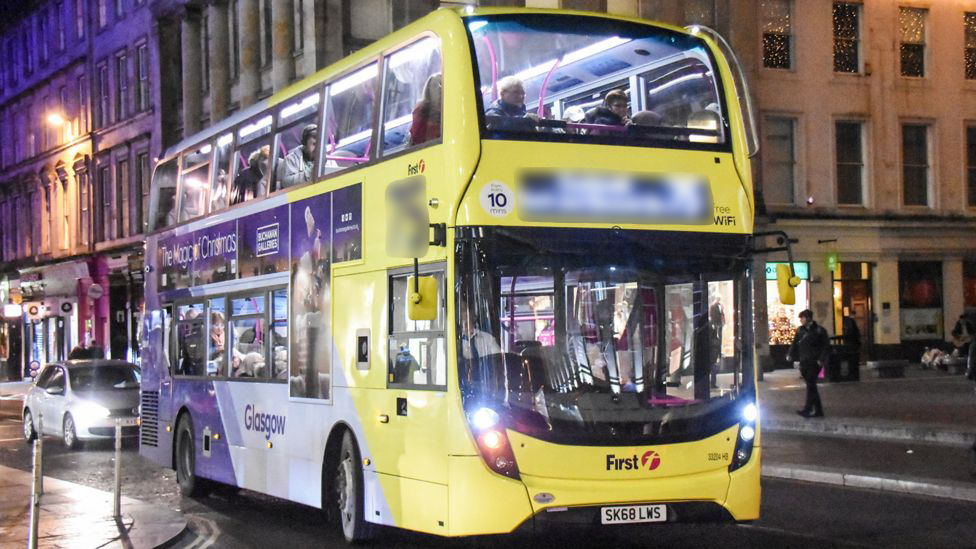First Bus delays withdrawal of Glasgow night services
- Published
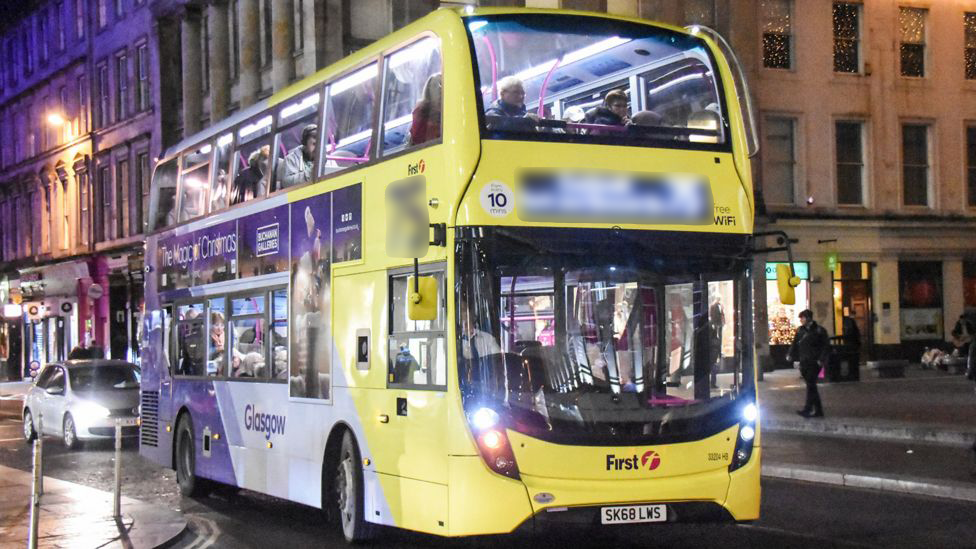
The First Bus decision would impact 11 routes across greater Glasgow
First Bus has delayed the withdrawal of its night bus services following an outcry from politicians, late-night workers and business owners.
The operator said that the late-night services, which were reintroduced a year ago, would stop on 31 July.
However, after a meeting with Glasgow City Council, the services will now remain in place until 20 August.
Managing director Donald Cameron said this would provide more time for partners to review their options.
First Bus previously blamed the decision to cut the service on low passenger numbers and a lack of drivers.
It claimed some night buses were regularly operating with as few as 14 passengers per hour.
The firm said it would redeploy its late-night drivers to support the daytime network.
Mr Cameron said the company was keeping an open mind for future options if the number of passengers increased alongside driver numbers.
He said: "It is important all stakeholders take learnings from the past six months and from the significant levels of discussion that have taken place this week.
"In Scotland, 75% of all public transport journeys are made by bus.
"It's vital that when given the opportunity to engage on all bus matters, representatives from all partners stand up and input their views before a decision is finalised."
'Critical importance'
Angus Millar, transport convenor at Glasgow City Council, welcomed the decision to extend the services temporarily.
He said that, while the council does not have a regulatory role in the bus sector, it can help facilitate further discussion around the future of the night bus services with the relevant bodies.
Mr Millar said: "Alongside First, we have also previously asked that the Scottish government extend free bus travel for concessionary travel card holders including under-22s to night services and reiterate that call.
"The public interest in the future of night bus services makes clear the critical importance of buses to the travelling public and all stakeholders must work together on an ongoing basis to support improvements to the city's bus network.
"In the meantime, all of us with an interest in the vibrancy and vitality of the evening economy must get together to look at the wider issues of late-night public transport."
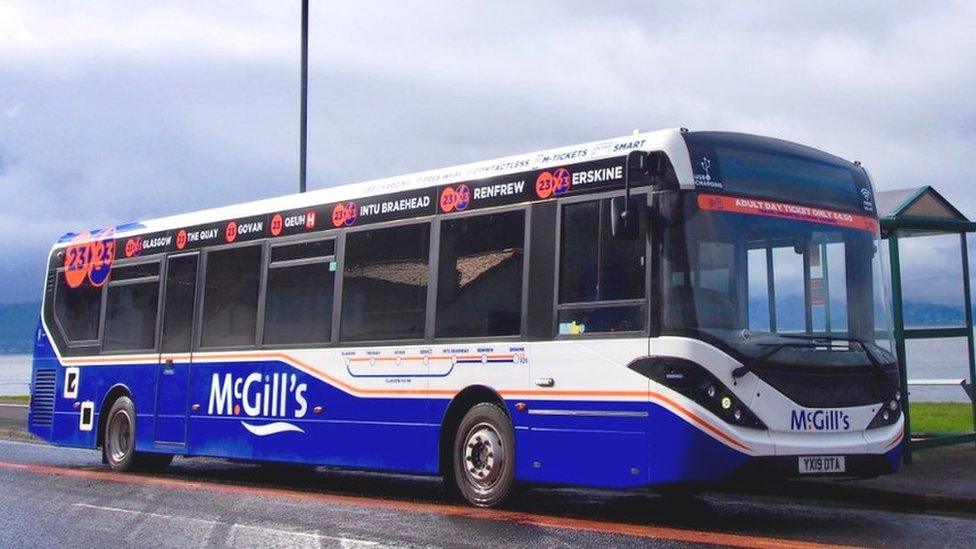
McGills is seeking approval to take on cancelled first bus routes
Earlier, McGill's Buses said it was considering taking on at least four of the night bus routes at risk in Glasgow.
Chief executive Ralph Roberts told BBC Radio's Good Morning Scotland programme: "We're pretty sure that we will put on at least four routes, potentially five," he said.
"Our first priority is to try to serve our daytime customers and the areas that we serve."
However, after First Bus announced the temporary extension of its late-night services, McGill's said it would await the outcome before deciding what to do.
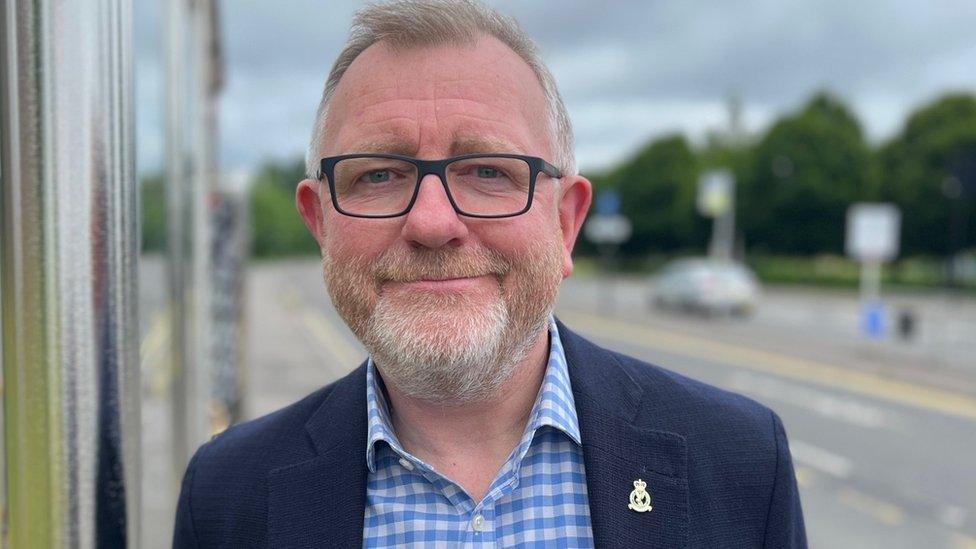
McGill's boss Ralph Roberts said they want to take on the routes that serve their daytime customers
On Thursday, the Herald newspaper reported that Duncan Cameron said novel solutions could include bar staff being trained to drive buses and cover the late services.
Scotland's largest regional transport partnership, SPT, said earlier this week that it had the power to subsidise bus services when they were withdrawn by commercial operators.
However, it said support would only be considered if the service was deemed to be essential for healthcare, welfare facilities, shopping or education and employment.
Poverty campaigners and night-time industry leaders have urged First Bus and Glasgow City Council to urgently review the changes to bus services and called for an integrated travel policy for the city.
Related topics
- Published13 July 2023
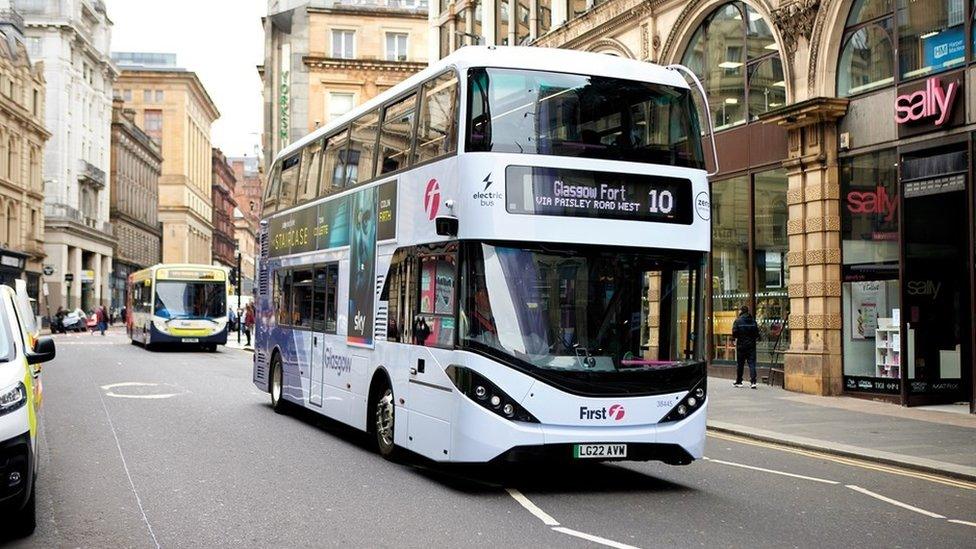
- Published12 July 2023

- Published10 July 2023
